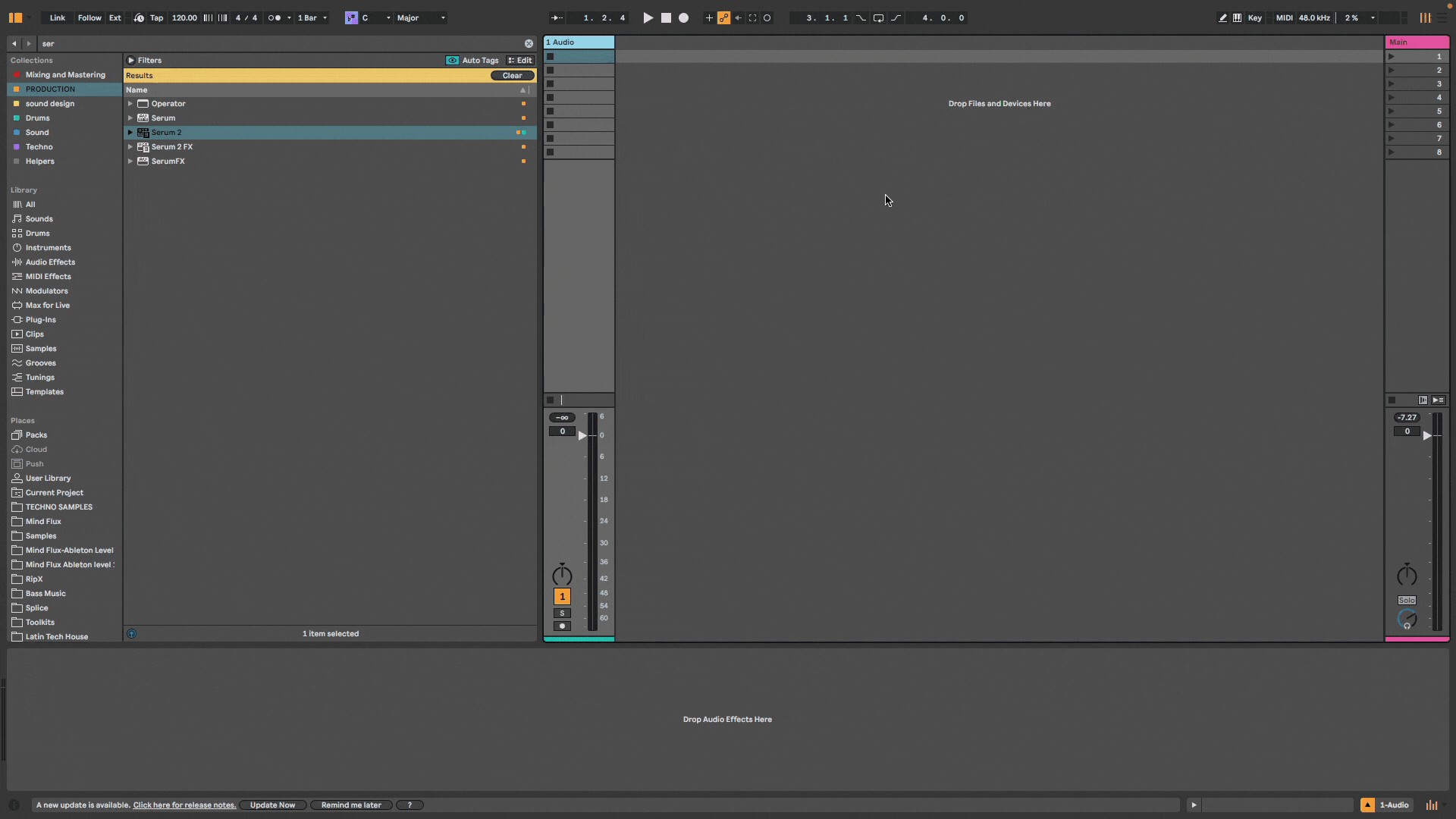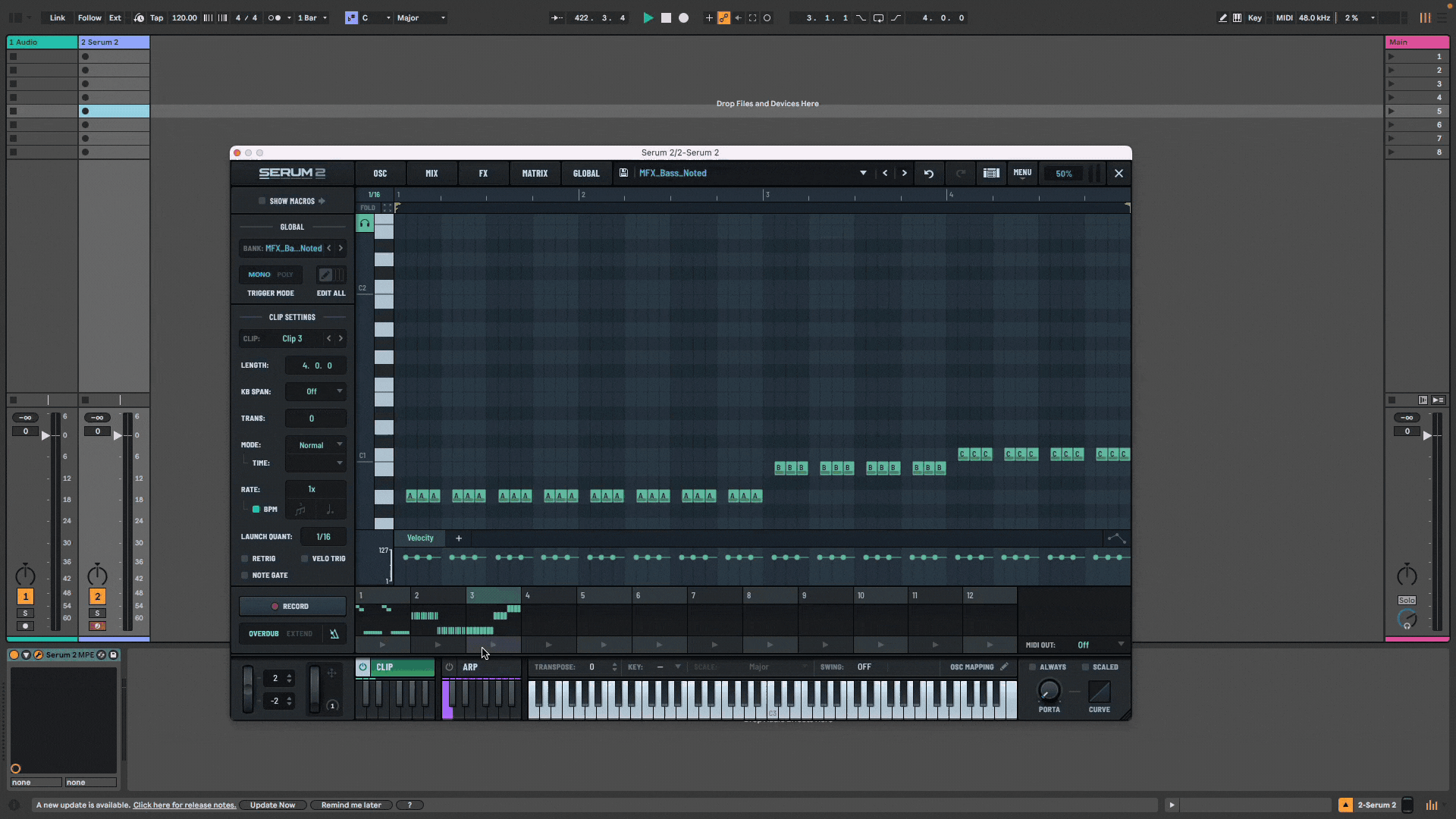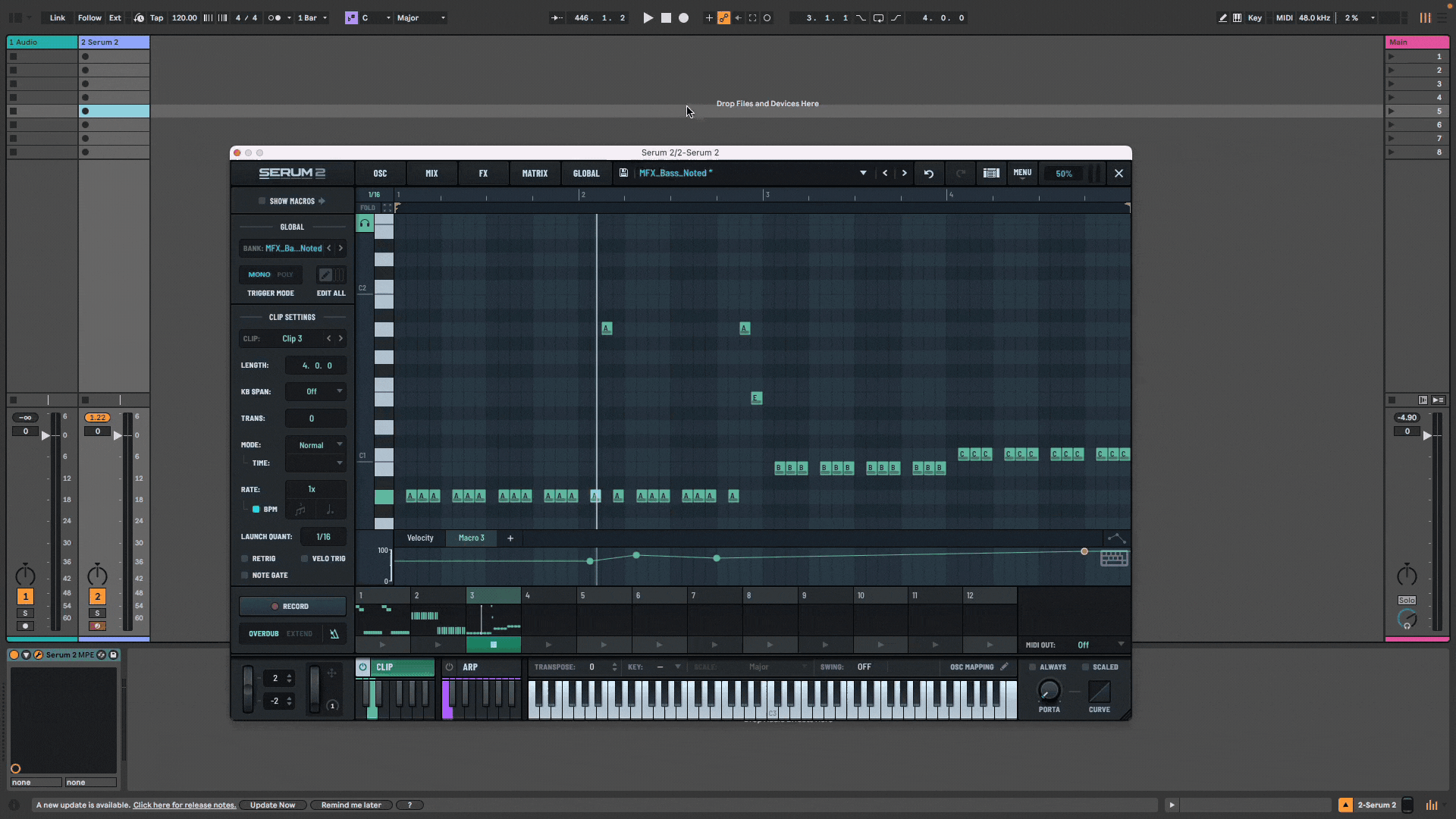How to Use Serum 2’s Built-In Clips in Ableton Live
Serum 2 isn’t just a synth — it’s an idea generator. With the built-in MIDI Clip Engine, you're not just loading a patch — you're triggering rhythm, phrasing, and movement already woven into the sound. These aren’t demo loops — they’re compositional starting points that live inside the synth. It’s no longer just about finding a cool preset. It's about writing faster, building with intention, and staying in the creative flow.
In this guide, we’ll show you how to harness Serum 2’s internal clips in Ableton Live. You’ll learn how to play, modify, and drag them directly into your DAW as MIDI — so you can turn sketch ideas into full productions without ever leaving your synth.
Why Serum 2’s Clip Engine Changes the Game
Most synths stop at sound design. Serum 2 brings the first 8 bars of your track to life. With its internal clip engine, you're instantly hearing:
Real phrasing and timing
Velocity and groove mapped to macro movement
An idea, not just a tone
This rewires your workflow:
You get inspired the moment you load a patch
You stay inside the sound engine to develop rhythm
You’re not guessing what fits — you're hearing what moves
For techno and loop-driven genres, this is massive. Serum’s Clip Engine gets you creating before your creative energy runs out.
How to Use Serum 2’s Clips in Ableton Live
Step 1: Load Serum 2 in a MIDI Track
Create a MIDI track in Ableton Live and load Serum 2. Choose a patch that contains a clip — every Mind Flux Serum 2 preset does.
Our clips are part of the patch’s expression. They're designed for movement, phrasing, and pressure — not just demo playback.
Step 2: Open the Clip Tab
Click the CLIP tab at the top of Serum. You’ll see a mini piano roll with notes, rests, velocity, and phrasing.
If it’s empty, you can:
Draw your own phrase in Serum
Paste MIDI from another source
Import a clip from another preset
These clips are designed to show how the patch moves — and how it fits into a track.
Step 3: Trigger the Clip in Sync with Ableton
To hear the clip:
Press Play in the Clip tab
Or trigger the preset via MIDI keyboard or mouse
Serum’s internal sequencer syncs to Ableton’s transport — no MIDI notes needed on the DAW timeline. It just plays.
This lets you preview patches with actual groove, not random note mashing.
Step 4: Modify and Sculpt the Clip
Inside Serum, you can completely edit the clip:
Move notes to adjust timing and phrasing
Shift velocities to add feel
Choose between Loop, Trigger, or One-Shot modes
Inject rests or syncopation for groove variation
Create builds, drops, or variations right in the synth — no external sequencing required.
Step 5: Drag the Clip into Ableton
This is the game-changer: you can drag Serum’s clip directly into Ableton.
To do it:
Open the Clip tab
Click and drag from the grid
Drop it into a MIDI track in Live
Now the phrase is a fully editable MIDI clip in your DAW. From here you can:
Duplicate, stretch, or transpose
Layer with other instruments
Use it as a motif across your arrangement
This makes Serum 2 more than a synth — it’s a loop engine that exports inspiration.
Closing
Serum 2's Clip Engine isn't about flashy features — it’s about redefining where music starts. Inside the synth, not after the fact.
When every patch comes with phrasing and momentum, you spend less time experimenting and more time producing. It’s not about presets. It’s about possibilities.
If you're building techno — this is where your groove starts.






